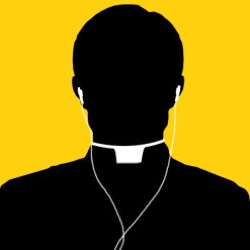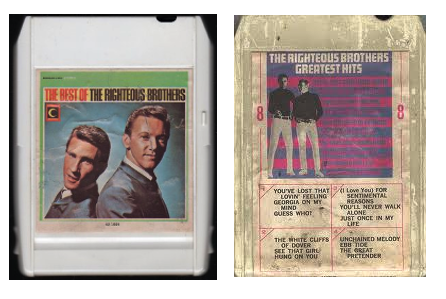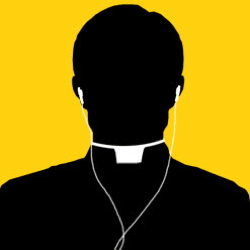Unchained Melody: Tunes from an 8-Track in an iPod World
 My thanks go straightaway to the Righteous Brothers for lending me the title of their great 1965 hit song, "Unchained Melody." In the era of my youth, its haunting score was the sheet music upon which many a romance was written. As I pondered its use for this post, the mesmerizing tune was mercilessly trapped in my mind for an entire day.Before it was an ode to love, however, "Unchained Melody" was about the agony and crushing loneliness of prison. The music was written by Alex North as the theme for the obscure 1955 prison film, "Unchained" starring Todd Duncan. Lyricist Hy Zaret added the lyrics, and the haunting song was first performed in a prison cell while other prisoners listened in silent desperation. The song was about a prisoner who longs to be free, who dreams of being reunited with his wife and family. It was nominated for an Oscar for Best Musical Score in 1955. It became known as “Unchained Melody” solely because of its association with the prison film.In 1965, "Unchained Melody" was produced anew by Phil Spector and made famous by a hauntingly alluring rendition performed by the Righteous Brothers. In 1990, it gained fame in a third wave as part of the score for the box office hit film, "Ghost" starring Patrick Swayze and Demi Moore. The prison roots of the song never quite left it despite its popularity as a love song. Unlike any other piece of music, its verses capture the brokenhearted loneliness forged by years in prison, and the Righteous Brothers' masterful rendition immortalized it on the Pop Charts. Take a moment to listen, please, as the Righteous Brothers perform this soulful longing for liberty and love:MY BROTHER, JOSEPHRight on cue this morning, along came my friend, Joseph, to ask what I am writing about. You've met Joseph before on These Stone Walls in "Disperse the Gloomy Clouds of Night," and "E.T. and the Fermi Paradox." Joseph likes to stop by to help with my TSW titles. He brags that every recent title that "was a hit" had his hand in it. So when he asked about this post, I told him I wanted to call it "Unchained Melody" after the great love song. "Never heard of it," said Joseph. "Can't you find something that isn't pre-Roman Empire?" I tried humming a few bars. Surely this kid has heard this great song. "Nope!" said Joseph. "Way before my time! That's why you need my help," he insisted. "You're kind of like an 8-track in an iPod world!"
My thanks go straightaway to the Righteous Brothers for lending me the title of their great 1965 hit song, "Unchained Melody." In the era of my youth, its haunting score was the sheet music upon which many a romance was written. As I pondered its use for this post, the mesmerizing tune was mercilessly trapped in my mind for an entire day.Before it was an ode to love, however, "Unchained Melody" was about the agony and crushing loneliness of prison. The music was written by Alex North as the theme for the obscure 1955 prison film, "Unchained" starring Todd Duncan. Lyricist Hy Zaret added the lyrics, and the haunting song was first performed in a prison cell while other prisoners listened in silent desperation. The song was about a prisoner who longs to be free, who dreams of being reunited with his wife and family. It was nominated for an Oscar for Best Musical Score in 1955. It became known as “Unchained Melody” solely because of its association with the prison film.In 1965, "Unchained Melody" was produced anew by Phil Spector and made famous by a hauntingly alluring rendition performed by the Righteous Brothers. In 1990, it gained fame in a third wave as part of the score for the box office hit film, "Ghost" starring Patrick Swayze and Demi Moore. The prison roots of the song never quite left it despite its popularity as a love song. Unlike any other piece of music, its verses capture the brokenhearted loneliness forged by years in prison, and the Righteous Brothers' masterful rendition immortalized it on the Pop Charts. Take a moment to listen, please, as the Righteous Brothers perform this soulful longing for liberty and love:MY BROTHER, JOSEPHRight on cue this morning, along came my friend, Joseph, to ask what I am writing about. You've met Joseph before on These Stone Walls in "Disperse the Gloomy Clouds of Night," and "E.T. and the Fermi Paradox." Joseph likes to stop by to help with my TSW titles. He brags that every recent title that "was a hit" had his hand in it. So when he asked about this post, I told him I wanted to call it "Unchained Melody" after the great love song. "Never heard of it," said Joseph. "Can't you find something that isn't pre-Roman Empire?" I tried humming a few bars. Surely this kid has heard this great song. "Nope!" said Joseph. "Way before my time! That's why you need my help," he insisted. "You're kind of like an 8-track in an iPod world!"

Ouch! That little gem – uttered from just beyond my reach, of course – just had to make its way into this week’s post about writing from prison. Joseph liked it so much he insisted on putting it in the title. Joseph and Skooter – whom you’ve met in “The Tale of a Prisoner” and “Pre-Apocalyptic Prison Paranoia” – have become friends, and sometimes collaborators in my writing. They are the same age, 25, which means that I was already five years a priest when they were born. They have set out to rescue my writing from – as Joseph put it this morning – “the literary obsolescence of your geezerhood.” Lord, grant me the grace to endure my blessings!Every Monday morning, Joseph and Skooter come to my cell to have a cup of instant coffee and settle in for what they now call our "TSW Title Conference." I'm fortunate that Pornchai is away at his woodworking at that time. The triumvirate of their combined running commentary is sometimes more than I can bear.Joseph especially likes to come up with clever TSW titles. I wish you could be a fly on the wall for some of these conversations. They're hilarious, but there are also some gems of wisdom - the experience of the streets, mostly - hidden in their banter. My weekly challenge, they agree, is to write of prison without ever letting my writing stoop to its true level. "A lot of news from inside prison isn't worth writing about," said Joseph, "and of course most of it CAN'T be written about." He thinks you would be utterly shocked and scandalized if I filled These Stone Walls with a day-to-day description of the darker things in prison life.Joseph is right, but the nature of prison itself is something that must be written about. Sometimes readers ask me to write of the darker side of prison, but I resist it. Some of it is dark indeed, darker than you imagine, and the challenge is to live within it without being changed by it. Our friend, Pornchai once wrote a day-in-the-life essay about one of his darker days in prison. It was widely noticed, and published by the prison watchdog site, Solitary Watch, entitled, "Welcome to Supermax." If you take a moment to read it, you'll understand why I never let Pornchai clean our cell!That dark side feels overwhelming sometimes, and it pushes relentlessly for headway against all hope that we are not changed by it. Of course, being an "8-track in an iPod world" actually makes it a bit easier not to be at the center of any of the daily prison trouble brewing all around me. It's a far greater challenge for Joseph. He was 17 years old when he first arrived in prison. He turned 25 two months ago. As a young African-American man, Joseph belongs to a subset of American culture that is vastly over-represented in prisons throughout the United States. As I wrote in "In the Absence of Fathers: A Story of Elephants and Men" (another of Joseph's titles) African and Latino Americans represent 30% of the U.S. population, but 60% of the U.S. prison population.THE MARCH OF FOLLYIn eighteen years, I've learned a few things about prison. The most basic lesson is that integrity and respect are essential qualities, not only for the men in our culture, but for the culture itself. The lack of integrity and respect is what typically lands young men in prison, so it would seem that the first duty of a society is to teach it to those who have, for whatever reasons, missed its lessons.The folly of prison seems so basic, however. Integrity cannot be taught by force, nor can it be taught by persons who seem wholly unprepared to ever demonstrate it. Respect cannot be infused solely by fear of further punishment. If it could, we would not now be looking at a dismal 50-percent recidivism rate in our prisons. As I wrote in "In the Absence of Fathers," this one prison released a startling fact just a few weeks ago. Of 1,095 prisoners released from this prison in 2007, 512 were back in prison by 2010. If any other public service operated with a 50-percent rate of failure, taxpayers would demand that it be restructured or shut down. Most American taxpayers, however, are satisfied with not knowing.The near total absence of integrity and respect in our ghastly expensive prison system, and the modern day renewal of the uniquely American urge to punish at the expense of restorative justice, is why our prisons are such a dismal failure. The focus of prison is not to learn the lessons required to live out there in the world. The focus of prison is to merely survive in this world - the world of prison that over time in the punishment of inflated sentences becomes the only world many of these young men know.Already, at age 25, Joseph has spent a third of his life in prison. Pornchai has been inside for over half his life. That the world's greatest democracy continues to maintain unchallenged such an expensive dismal failure is a travesty. That this nation now routinely seeks to throw young lives away in a growing trend toward privatizing prisons for profit is a national disgrace. Prisons for profit require that their host states guarantee that the prisons will remain at 90-percent capacity to satisfy its stockholders. This disgrace has global consequences for America's integrity on the world stage. As astute TSW reader, Jamil Malik wrote of America's prison system in a comment on "In the Absence of Fathers" a few weeks ago:
"Meanwhile, America is in my country demanding democracy and human rights. This is a global example of removing the splinter from your brother's eye while ignoring the plank in your own."“Amen!" Jamil
THE GENESIS OF JOSEPHIn the meantime, I'll keep writing, and despite what Joseph says, I'll do my best not to bore you. It's not easy writing my own unchained melody while being an 8-track in an iPod world. I thank Joseph for that little gem of wisdom now immortalized on These Stone Walls, but I also have a challenge for him.Rule infractions in prison result in further punishment through what is called a Disciplinary Report or "D-Report." Joseph's most recent list of “D-Reports" is eight pages long, and that includes only last year. In fact, he collaborated with me in the writing of "E.T. and The Fermi Paradox," but by the time it was posted on TSW, Joseph was in "the hole" and had to read a copy of it there.When Joseph came to see me this week for our "TSW Title Conference," he boasted of something entirely new. He has gone eight months without a single “D-Report." If you trust me on nothing else, readers, trust me on this: This new thing for Joseph isn't because of prison. It is in spite of it!Joseph has a great mind, and a widening capacity for the integrity and respect needed to reach its potential. So I am issuing a challenge to him to write his own unchained melody, and to write it free of the fetters of prison, free from the prejudices of a system that expects nothing better of him, and fosters even less. As an African American, Joseph owes it to his great struggling heritage not to settle for captivity, but to be resolved to step from its bleakness onto a higher plane, the one I know is within his reach.I have hope for Joseph, just as fate had hope for the Joseph of Genesis whose own brothers cast him into a prison from which he emerged with greatness. For it was there in prison that that Joseph lost himself, and discovered God.
“Prison and the authorities conspire to rob each man of his dignity. In and of itself, that assured me that I would survive, for any man or institution that conspires to rob me of my dignity will lose because I will not part with it at any price or under any pressure. I never seriously considered the possibility that I would not emerge from prison one day. I never thought that a life sentence truly meant life and that I would die behind bars. Perhaps I was denying this prospect because it was too unpleasant to contemplate. But I always knew that someday I would once again feel the grass under my feet and walk in the sunshine as a free man."Nelson Mandela, Long Walk to Freedom (New York: Little, Brown Co. 1994), p. 341.

